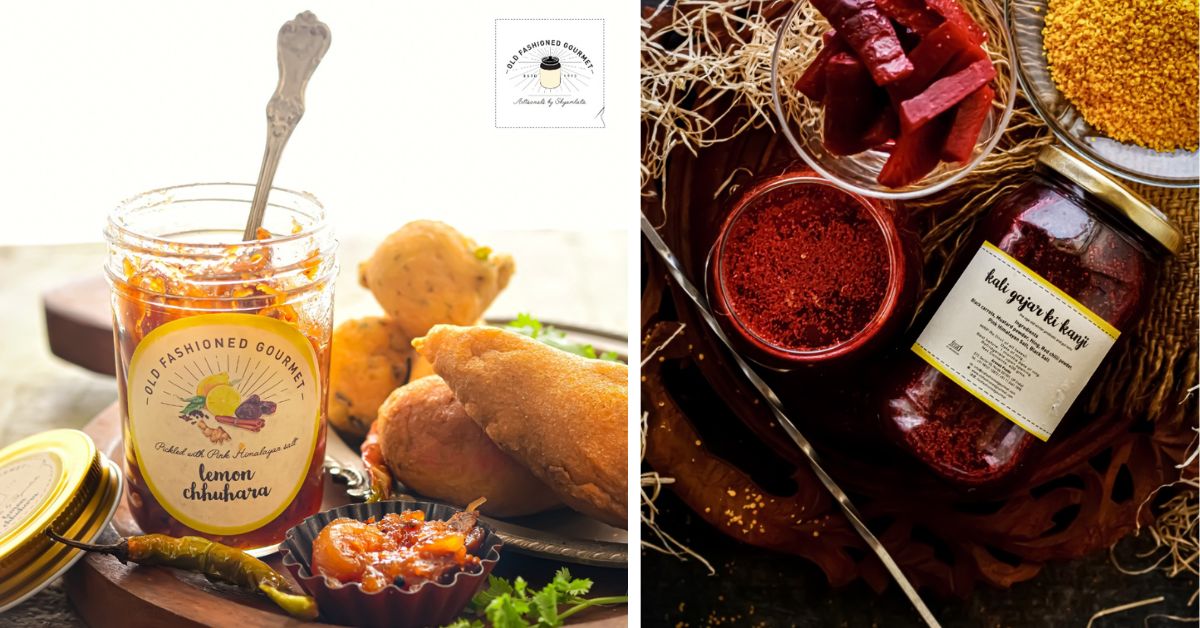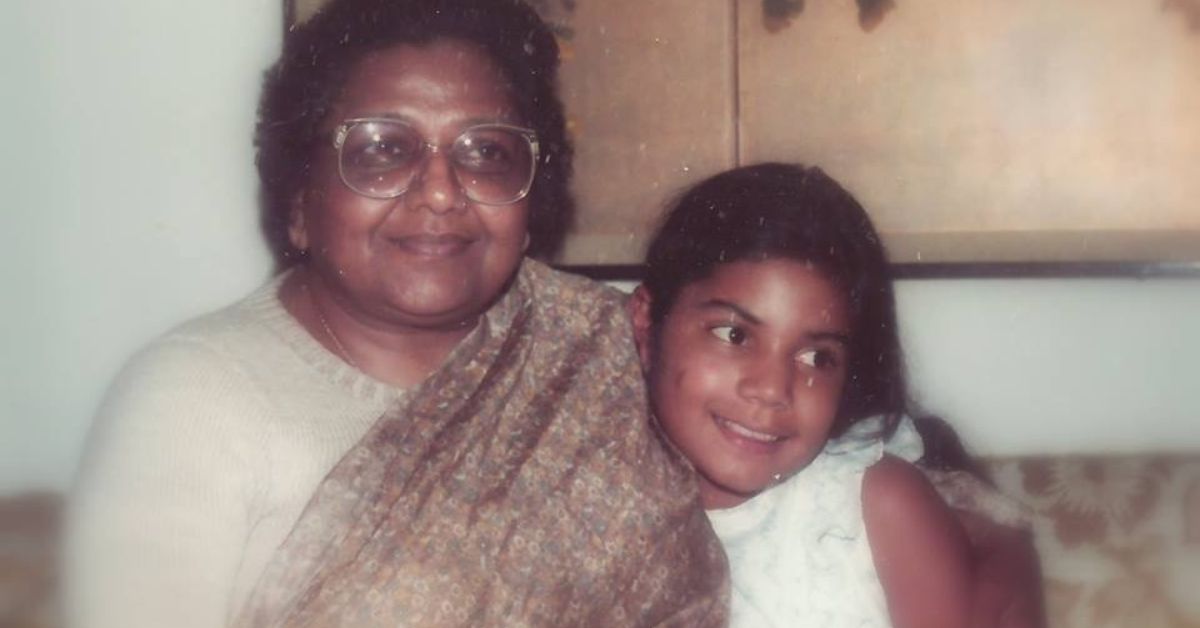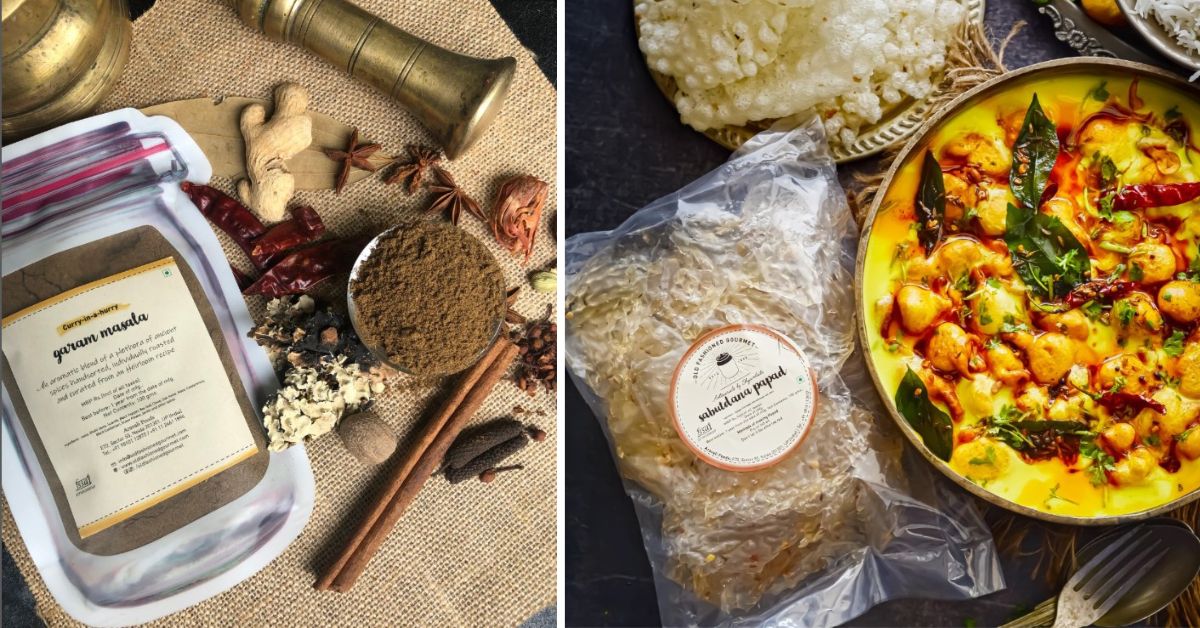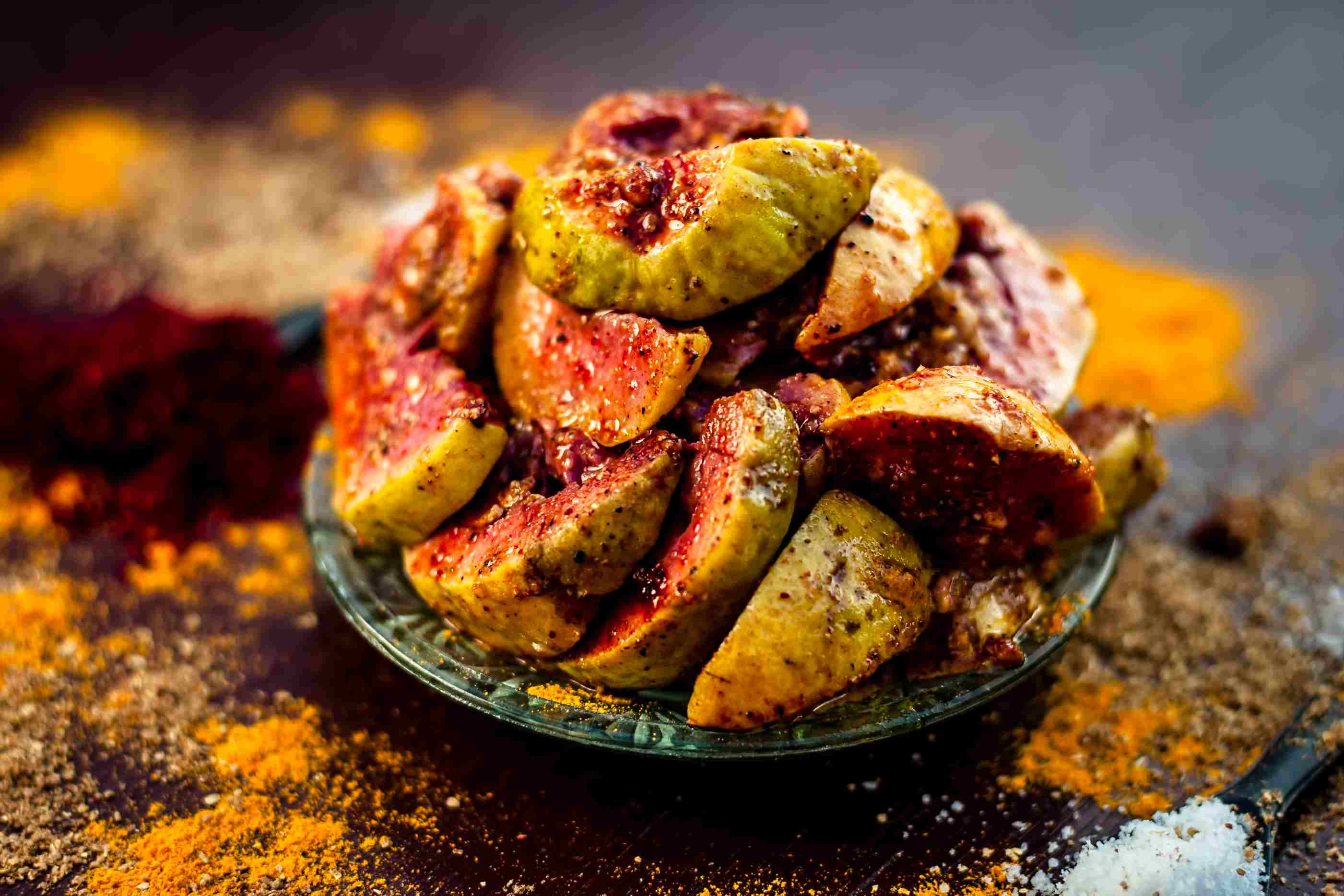Hidden in a corner of the Internet’s archive is a tasty secret — one sautéed in cold-pressed oils, and enhanced with sendha namak (Himalayan pink salt). A secret is only as good as its keeper. And so, we took it upon ourselves to trace Shyamlata Sihare down over three decades, two continents, and numerous cities, intent on discovering her journey of building ‘Old Fashioned Gourmet’, also known as ‘Aravali Foods’ — a secret hinged on traditional Indian spices and time-tested cooking methods.
The brand’s pickles, papads (fried Indian snacks), squashes and mangodis (green gram fritters) have been breathing life into the dining tables of India since 1993.
A browse through Old Fashioned Gourmet’s fascinating repository of pickles — think lemon ajwain, lal mirch Banarasi, gajar gobi shalgam — makes one thing clear: the flavours are zesty, adventurous and not afraid of breaking new ground. As I learn from Sihare’s daughter, Vasundhara Jhunjhunwala (50), her mother was the same.
Vasundhara’s anecdotal accounts underscore how Sihare loved pushing the envelope, never letting circumstances dictate her fate.

Widowed at the age of 16 — “We’re talking about pre-independence when girls were married off young” — Sihare was blamed for her husband’s untimely death. “Her in-laws started ill-treating her,” her daughter shares, adding that her mother was spared this harassment by her maternal grandfather, who brought her back to her parents’ home. But here, she was relegated to a life of white saris and short hair.
Widows had to follow a decorum in those days. Leaving the home was a luxury. And so, when Sihare announced she’d been accepted into Michigan State University for an MA in advertising, everyone was stunned. How exactly her mother managed this feat will always remain a mystery to Vasundhara. It’s a question she wishes she had asked her.
Sihare passed away in 2014 at the age of 85.
A kg of pickle and a weighty legacy
Mantra 1: Never give up.
Mantra 2: If they can make it, I can definitely try.
Bengaluru-based Vasundhara holds these lessons close, especially the second one, which she clung to dearly when in 2014, she was entrusted with the reins of Old Fashioned Gourmet after Sihare’s passing.
Among the many traits Vasundhara has inherited from her mother, one is the art of embracing opportunity. She interjects her mother’s story here, picking up from after she completed her degree in Michigan. The years that followed saw her return to India, remarry, join the family business, and then dive into entrepreneurial waters in 1970. “She became the first woman paper merchant in Delhi’s all-male paper market,” Vasundhara shares.

At 65, when life and family coaxed her to slow down, Sihare decided to test her strengths yet again. She wanted to start a brand. Whenever Vasundhara is asked where the roots of this pickle empire lie, she thinks back to the kilo of mango pickle her mother made — now the poster child of the brand’s menu.
“My mother created this brand to revive heirloom recipes of pickles and spices,” Vasundhara attributes the choice of menu to her mother’s marwari genes (a community of Rajasthan). Through the menu, Sihare championed the heritage recipes she had grown up feasting on, thus creating flavours that her family and India would come to enjoy. Since the early days, her genius lay in her curatorial skills, especially when it came to ingredients.
Vasundhara says, “Her pickle-making started with purchasing the best spices, sorting, sun-drying, and then hand-pounding them to perfection.”
When heirloom recipes find their way onto modern tables
Often, Vasundhara’s archival pursuits to revive some of her mother’s recipes lead her to yellowing recipe books, whose corners divulge their age. But in them, she finds treasure. Take, for instance, the ancient mint salt — a medley of 25 spices and mineral salts — which adds a zing to so many of their snacks. Furthering her mother’s legacy has been fun, she says, but it isn’t immune to challenges.
“I remember when I was developing a recipe for Mangalore-style ghee roast masala. The main ingredient is red chilli powder (an expensive one). We ground the powder, set it aside for a few hours and later realised that it had burnt in its own heat.”

While it was viable, it wasn’t top quality. “My staff asked me what we should do,” Vasundhara shares, adding that she replied with a question of her own, “What would amma do?” That day, 30 kg of red chilli powder was discarded.
This same conscientiousness spills into their procurement of ingredients. “The strawberries for the strawberry chia preserve come from a farm on the outskirts of Delhi. We only source mangoes from a particular place in Gujarat. Each mango needs to be of a certain weight to be considered for the recipe. We buy very few ingredients from the market, most are from their places of origin.” This is what lends an exquisite authenticity to their pickles and papads.
I can’t help but think how lucky Vasundhara is to have grown up feasting on these things. She agrees. One of her favourites was the gajar gobi shalgam. A quintessential Punjabi winter pickle, this one had Vasundhara’s heart and she was keen on introducing it to the menu. After scouring Punjabi friends’ homes, she managed to find a “dear biji (grandmother)”, who obliged her with the recipe.

Carrot, cauliflower, and turnip convene in this mouthwatering pickle that is topped with winter jaggery. The pickle’s position at the top of their sales charts reveals it is quite the hit. But though impressed, Vasundhara says sales can’t be the only barometer for success. “There are people who eat our pickles and claim they haven’t tasted something similar since their grandmother passed away decades ago. That makes us happy. Food flavour is only a portion of one’s food memory; it’s also about how old you become in the instant that you’re eating a certain thing.”
A good flavour should elide the years between generations.
To that, she adds, “When passion drives you instead of commerce, decision-making becomes very simple. Our purpose is to keep amma’s legacy alive.”
And so, when the kitchen or life dish her lemons, she asks, ‘What would amma do?’
The answer is clear: Make a pickle, of course.
You can purchase pickles from the brand here.
Edited by Khushi Arora, Pictures courtesy Vasundhara Jhunjhunwala
